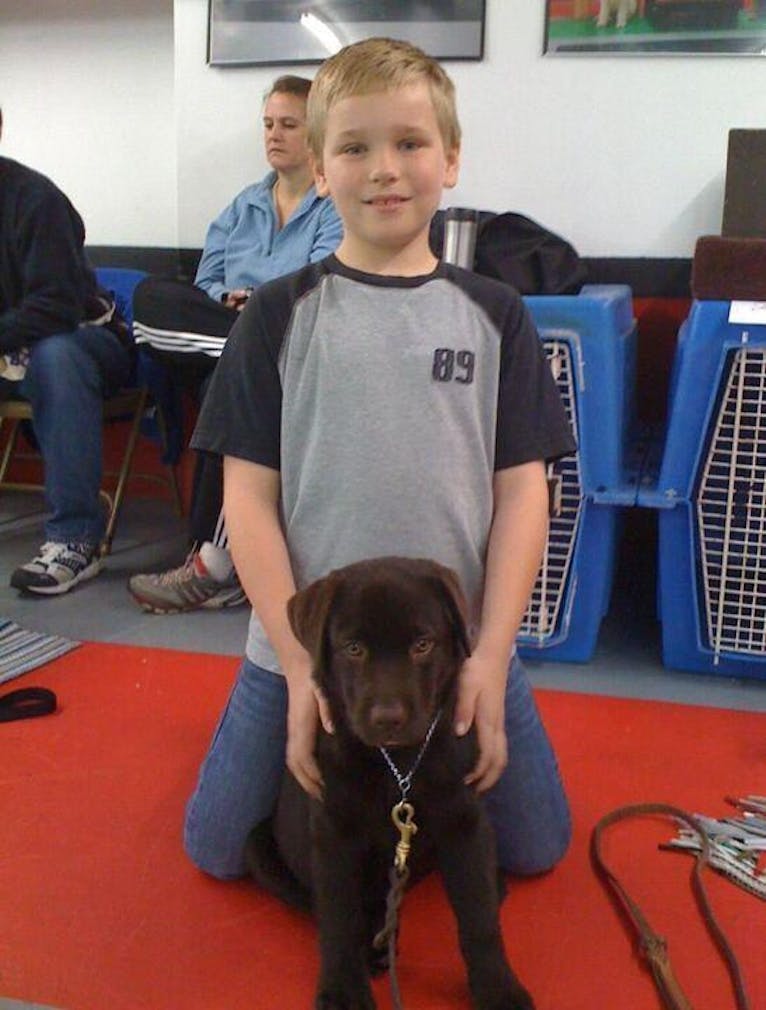Jacob Rodgers is a third-year media major and writes “Inner Thoughts” for the Daily News. His views do not necessarily reflect those of the newspaper.
I have grown up with dogs my entire life. From my earliest memory, there was always a dog running around our house.
We’ve also seen our fair share of both rescue and puppy mill dogs. Puppy mills are commercial dog breeding facilities that “may sell puppies in pet stores, online or directly to the public,” according to the Humane Society of the United States.
One of the dogs we brought into our home was a beagle, whom my parents purchased from a puppy mill. While there were initial concerns like diseases and proper vaccination — which are common issues often seen in puppy mill dogs — another problem arose.
Due to a lack of human interaction and interference, our dog ended up becoming very aggressive.
According to the American Society for the Prevention of Cruelty to Animals (ASPCA), dogs from puppy mills and commercial breeding facilities often have behavioral issues ranging from shyness and cowering to hyperactivity and aggression.
After a few biting incidents, the dog had to be given up. While many parents tell their kids the story about their dogs going to “live on a farm” as a coverup, my dog was genuinely sent to live on a farm. And it was the last time my family pursued getting a dog from a puppy mill or breeder.
Indiana — the state where I was born and raised — has passed legislation that would strike down local ordinances banning dog sales from puppy mills and breeders.
In late January 2024, the Indiana House of Representatives passed House Bill 1412 with a 59-36 vote. It has since passed the Indiana State Senate by a 31-18 vote and was signed by Gov. Eric Holcomb.
This bill not only regulates the retail sale of dogs but bars cities from passing preventative ordinances to protect dogs.
The bill, which is titled the “Canine Standard of Care,” is said to establish a random inspection program for dog breeders, brokers and retail pet stores. The bill would implement canine care certification requirements, pet store return policies and breeder licensing requirements.
On the surface, it sounds like a good idea, but there’s a downside to the bill.
The part of the legislation getting attention and pushback from animal advocates — including the ASPCA — was the section that prevents local ordinances from prohibiting pet stores from selling dogs.
What makes this so dangerous is that the Indiana state government wants to intimidate local governments that are attempting to protect puppies from inhumane conditions.
While many people enjoy going to pet stores and breeding facilities to play with the puppies, what they don’t see is the overflow of grown and senior dogs filling the cages of rescues and pounds.

As the country’s pandemic pet adoption boom slows, shelters are swamped. There were roughly 250,000 more pets in animal shelters at the end of 2023 than there were in 2022, according to Shelter Animals Count, a nonprofit that gathers statistics on unhoused pet populations.
Growing up in central Indiana, there was never a short supply of pet stores. I used to get so excited to see the young puppies behind the glass, tempted by the prospect of going and playing with them.
But I now realize how young dogs are often bred by the dozens, separated from their mothers and used for profit. Posted around town are flyers of cute puppies, asking potential buyers to come “play” with the dogs instead of “adopt me” or “give me a home.”
More often than not, puppy mills have poor sanitation and hardly any preventive veterinary care for dogs, which causes them to suffer from both long-term physical and mental health issues, according to the Humane Society of the United States. The lack of attention they receive and the minimal amount of space that they have in their cages results in the dogs developing concerning behaviors and traits.
Most potential buyers and/or adopters aren’t equipped with the knowledge or resources to take care of the dogs.
For example, dogs are most likely to be returned to stores or breeders due to the “unrealistic expectations” of the adopter, according to a 2020 study published by the National Library of Medicine. Results from the study showed that while the adoption rate of both dogs and cats has gone up in recent years, many are returned for reasons such as behavioral issues or cost.
Puppy mills, pet shops and breeders don’t often focus on pet care education for new dog owners, which results in returns and puppies left without owners. Due to the mass production of puppies, oftentimes breeders can’t sell and home every single dog bred, leading to an influx of dogs surrendered to already overflowing shelters, according to an article by the BISSELL Pet Foundation.
According to the ASPCA, 6.3 million companion animals are brought into animal shelters every year and only 3.2 million of them are adopted. On top of that, 1.5 million animals are euthanized because animal shelters can no longer take care of them. These are horrifying numbers.
Ethically adopting dogs is very important, but the process of finding a breeder makes a huge difference. The Humane Society of the United States, for instance, suggests doing a background check on breeders in order to make sure they’re responsible and transparent about their breeding practices.
The society also suggests asking around for referrals before looking for potential breeders. Asking a local veterinarian is your best bet. Before buying a dog, check out the breeding facility — see where and how your puppy is being raised. Doing this allows you to background check the breeder on your own and get a better scope of how your dog was raised.
It is also important to look at this on a national scale. Congress has proposed legislation to properly regulate dog breeding and provide humane care for the dogs in the process. In 2019, a Republican congressman, Brian Fitzpatrick, proposed two pieces of legislation to make that happen, but they have not gotten anywhere despite the bipartisan backing.
These bills — H.R.2442: Puppy Protection Act and H.R.1002: Welfare of Our Friends — would improve the way we approach dog breeding in this country, and they would put us in the right direction.
Overall, the idea of keeping dogs in cages all day with hardly any attention, space or love is a dangerous and inhumane practice. HB 1412 not only results in a seismic increase in government overreach, but it also increases the risk of animals being neglected based on profit.
Contact Jacob Rodgers with comments at jacob.rodgers@bsu.edu.


![A member of Open Door Health Services [ODHS] Connections Team meets with a resident and assists them with enrolling in a health insurance plan in 2024. CEO and President of ODHS Bryan Ayars said around 10%-11% of their patients they see are uninsured. ODHS, Photo provided](https://snworksceo.imgix.net/bsd/6f04939c-59ef-4f5b-930d-1ab3f45749c1.sized-1000x1000.jpg?w=1000&ar=4%3A3&fit=crop&crop=faces&facepad=3&auto=format)


